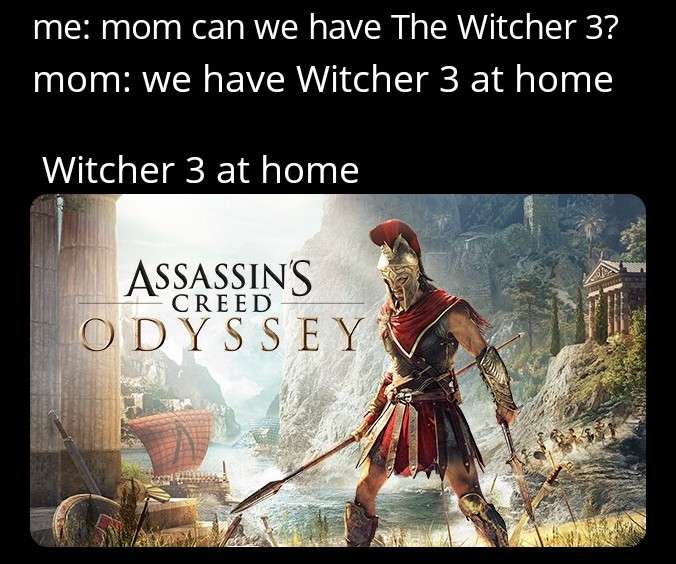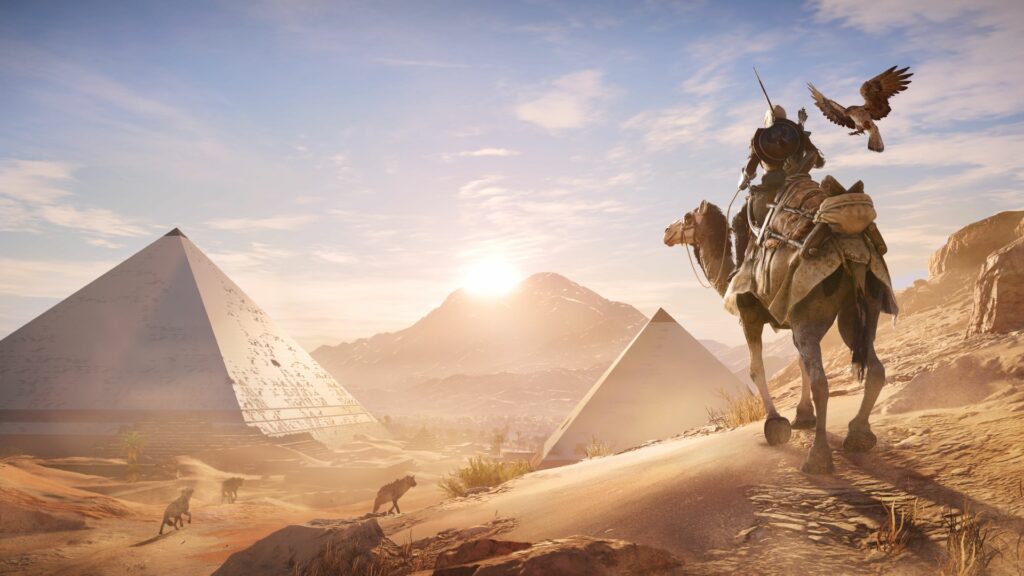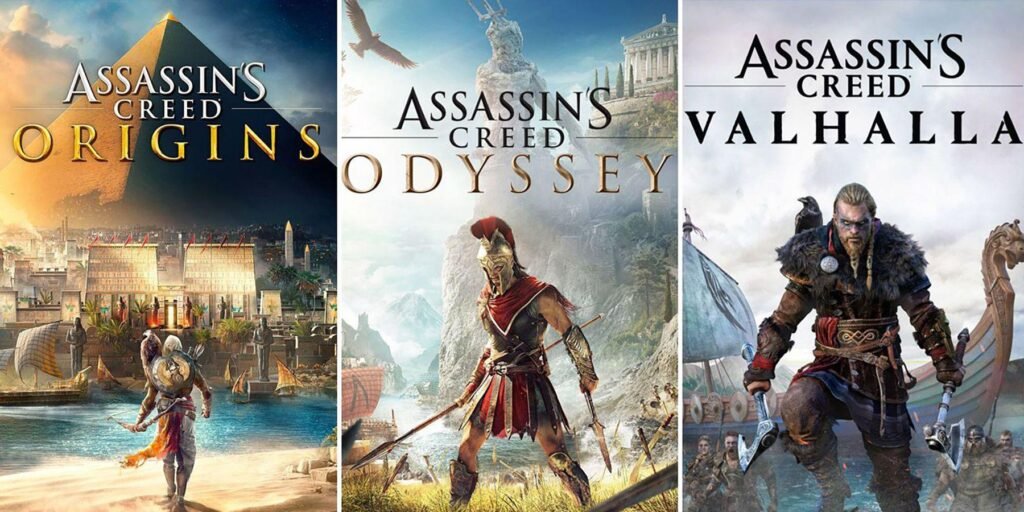The last three Assassin’s Creed entries have left longtime fans and critics questioning the direction of the franchise. Far from embodying the stealthy, immersive and historically inspired experience that made the series famous. These games seem to have taken a detour into the realm of generic open-world action RPGs, sacrificing what made Assassin’s Creed special.

What caused this change is direction?
I can think of two major reasons that were the impetus that prompted such a drastic 180 in the identity of the Assassin’s Creed franchise. The first being the poor launch reception of Assassin’s Creed Unity, and the second being the raving reception of the Witcher 3. Unity was an ambitious project for Ubisoft. At its time of release, it had been in development for roughly 6 years, with almost everything that we were familiar with from the older games changed and in a major way. Ubisoft had a lot riding on this project.
Unity had a new combat system which was far more engaging than the older parry based system, it had a new parkour system, a defining feature of the series. The new parkour system flowed smoother and allowed for more complex climbing and descending maneuvers. To this day, Unities parkour is considered the best by the community. Ubisoft even developed new tech to simulate large crowds on the streets of Paris, and introduced 4 player co-op missions. Assassin’s Creed Unity was also the first proper next gen title for the new generation of consoles. So whether it was the newness of the systems they were being developed for or if the studio simply didn’t have enough time, Unity at launch was an unoptimized and buggy mess. Most were so frustrated with the game that they just gave up within the first few hours and never experienced the game fully. An experience which was admittedly quite solid if you could get past the poor performance and bugs. Unities issues left a poor taste in the communities mouth and led to subpar reception of Syndicate as well.
Comparison with The Witcher 3
The second reason that I had presented was the success and critical acclaim of the Witcher 3. After Unity and Syndicate failed to meet executive expectations, Ubisoft probably looked at the success of the Witcher 3 and tried to once again reinvent the franchise with a new coat of RPG paint and replicate the Witchers success. Unity was already a significant overhaul of the gameplay we had gotten used to up till Assassin’s Creed 4: Black Flag, but it had maintained the soul and identity of an Assassin’s Creed. With the release of Origins, 2 years after Syndicate, Ubisoft had taken the first steps towards making Assassin’s Creed an RPG. Origins Still contained features from the old games. It still had some focus on stealth and allowed you to assassinate enemies, provided you were the same level. But the later games were a significant departure from the series and decidedly combat focused with very little historical accuracy.

Abandoning the Core Assassin Experience
With Assassin’s Creed Origins, fans were hopeful that it would revive an ailing franchise. It was a much requested setting of Ancient Egypt, and the narrative based on the origins of the Assassins. Instead, they were met with a somewhat shallow interpretation of the assassin experience, the focus shifted from hidden blades and cunning tactics to hack-and-slash combat and the story had taken a more fantastical turn, parkour was also dumbed down significantly. But one could suspend disbelief, and still enjoy Origins as an Assassin’s Creed. This trend of ignoring stealth over action continued with Assassin’s Creed Odyssey and Valhalla, which further emphasized action over stealth.
This problem of lack of stealth rears its head the most in Odyssey, it doesn’t even have a hidden blade and lacks social stealth, which speaks volumes to the kind of gameplay it’s emphasizing. Its narrative is highly fictionalized, fantastical and set even before the events of Origins, which according to many long time fans’ and critics was unnecessary. Valhalla tried to remedy this by adding minimal social stealth back but in every encounter stealth seems like the inferior option and never given equal footing to combat.
Bloated Open Worlds
Origins, Odyssey, and Valhalla all share one common flaw: a desperate need to prioritize quantity over quality. These games boast vast open worlds that are meant to impress players with their size, but they fail to deliver substance and meaningful gameplay within those worlds. Rather than densely populated and meticulously designed environments of the old games. Players are left with generic, repetitive side quests and tedious collectibles in a flat and personality less world. The result is an inflated sense of content that ultimately feels hollow and uninspired.
Diluted Historical Settings
One of the most captivating aspects of the earlier Assassin’s Creed games was the attention to historical detail. Whether it was Renaissance Italy or Revolutionary America, the settings were meticulously crafted to transport players to a specific time and place. However, in Odyssey and Valhalla, the historical accuracy and immersion take a backseat to a superficial presentation of their respective time periods. The games become mere playgrounds where historical figures are reduced to caricatures, and the narrative loses its depth and impact. Valhalla’s DLC even lets you visit Asgard with all its gods and mythical monsters. All these additions make it very hard to take seriously a franchise previously grounded in reality.
Over-reliance on Microtransactions and Grind
Another disappointing aspect of these recent titles is the heavy emphasis on microtransactions and grindy gameplay mechanics. In an attempt to monetize the franchise further, Ubisoft introduced many in-game purchases that disrupt immersion. Ubisoft touts Valhalla as its most profitable game, what people fail to see are the amount of microtransactions crammed into every corner of this game and their aggressive advertising. This leads to whales opening up their wallets for the shiniest new armor skin, and Valhalla becoming Ubisoft’s most profitable game.
With the upcoming Assassin’s Creed Mirage Ubisoft says the game is a return to the old Assassin’s Creed formula and heavily inspired by the first entry. Hopefully in the future we see more games with a stealth focus alongside the RPG entries.
If you enjoyed this post, be sure to check out more content on Poggers Memes. You can check out how Overwatch Genesis could start an extended cinematic universe
